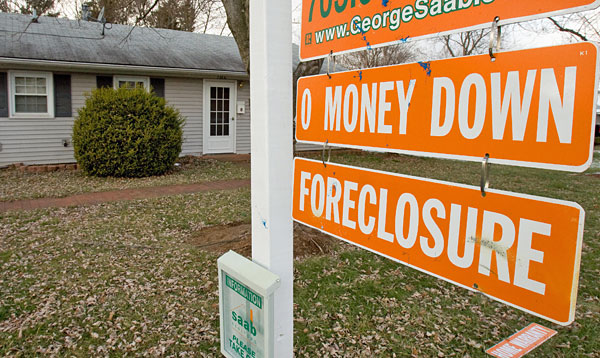 There is currently a high probability that Sarah Palin will run for President in 2012. This is not based on her qualifications, but on her strength as a symbol for Republicans who are suspicious of advanced education and secularism.
There is currently a high probability that Sarah Palin will run for President in 2012. This is not based on her qualifications, but on her strength as a symbol for Republicans who are suspicious of advanced education and secularism.As things stand now, it appears that a Palin campaign would be just like McCain's, but without his moderating influence. It would most likely be a very divisive campaign, fought at the level of fear, insinuation, holier-than-thou moralizing, and dirty tricks. That is, yet another a campaign that would harm America regardless of who wins.
As a Democrat, I would rather have a Republican win a campaign focused on constructive debate and including all elements of our society, than have Obama or some other Democrat win a second term by vanquishing yet another destructive, McCarthy/Nixon/Bush-ish Republican attack. But given that Palin is likely to run, is there anything that can be done now to raise the level of the 2012 campaign?
I think there is. I think that Obama should have as one of his priorities the "education" of Sarah Palin, with an eye toward the level of debate of the 2012 presidential election.
This does not mean that he should try in any way to convert her into a progressive. In fact, that would be a mistake, because if that happened, someone else, maybe someone even less likely to run a responsible campaign, would run as the Republican candidate. Instead, what Obama should do is to give Palin a voice in the Obama administration. Not in a central position with a title and real power (because she is not yet qualified for that), but in an advisory capacity, where she would have a genuine opportunity to shape national policy through the force of her ideas.
A straightforward way to implement this, for example, would be for Obama to ask groups of governors (including Sarah Palin) to produce executive advisory reports on topics of interest to their states. Palin should be included in both energy and wildlife related committees, and any others that might apply. President Obama should take an active part in these governors' groups, and Governor Palin should be asked to take on a leadership role as well.
This would be valuable experience for Palin in two ways. First, in a group consisting of governors and presidents, hopefully only good ideas would survive. Even if she herself did not produce much in this regard, the experience of taking part in such a process at a national level would provide her with context that was desperately lacking in the 2008 campaign. Second, by working personally with Obama and with a diversity of governors and members of Obama's cabinet, I believe that she will lose her fear of them. They will become colleagues. At a minimum, this will provide a degree of collegiality that was sadly missing in 2008.
In short, ironically, perhaps the best thing that Obama can do to prepare for 2012 is to help prepare his most likely opponent. This is a win-win for everyone. Her participation in these national groups will add essential breadth and depth to her candidacy. Her input will make the product of the groups more representative of the national consensus. The campaign will most likely be far less harmful to the nation. And, in the event that she actually won the election, the experience could make her a much better president than she would be otherwise.
One might imagine that Palin would be unwilling to partake in this process, because it could lose her her Mackerick™ spurs. This would be a decision she would have to make. I think the governors advisory groups are a good idea in any case (something like that seems to be gather steam even now, before the inauguration), and I think it would be her loss if she decided not to participate, or if her participation was obstructive rather than constructive. In any case, I think the attempt should be made to include her.
Greg Shenaut




